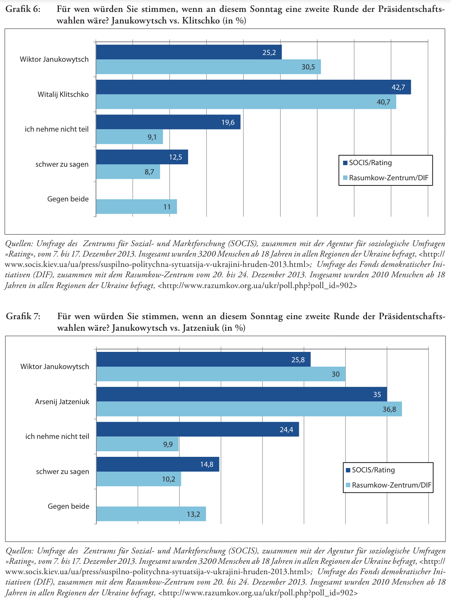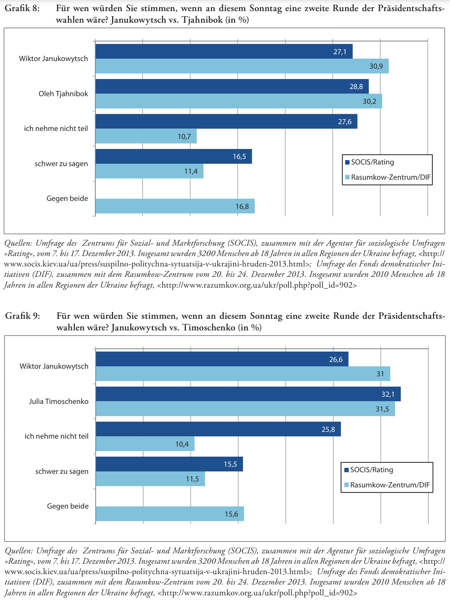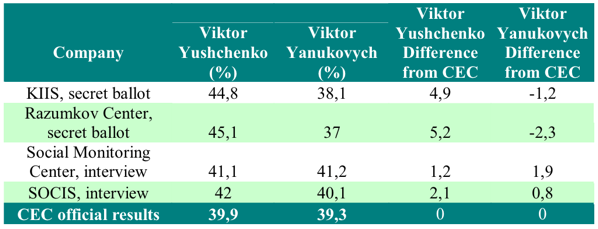The search term “Zaluzhny bloc” surfaces 10 search results on google. The first one of which is a Newsweek article:
Ukrainian President Volodymyr Zelensky would lose to the commander-in-chief he fired if an election were to be held now, according to a poll.
Zelensky removed Valerii Zaluzhny from his post in February following months of speculation about a rift between the pair, likely exacerbated by the general’s assessment to The Economist that the war in Ukraine had reached a stalemate.
Zaluzhny was replaced by the commander of Ukrainian Land Forces Oleksandr Syrsky but has continued to enjoy great popularity among the Ukrainian public.
Ukraine’s constitution mandates presidential elections to take place on the last Sunday of March in the fifth year of the incumbent’s term, which would have been March 31. However, following Vladimir Putin’s full-scale invasion, Kyiv has declared martial law which prohibits elections being held.
Valerii Zaluzhnyi, former commander-in-chief, on Independence Day on August 24, 2023 in Kyiv, Ukraine. Latest polling suggests he would beat President Volodymyr Zelensky in an election.
But a survey by the Kyiv-based firm SOCIS conducted between February 22 and March 1 asked 3,000 Ukrainians adults how they would vote in a hypothetical ballot.
The poll with a margin of error of 2.1 percent found that if an election were held, 41 percent of respondents would have backed Zaluzhny in the first round, compared with 23.7 percent for Zelensky.
In Ukraine’s election, if there is no candidate with a majority, a second round would be held and this scenario would see Zaluzhny get over two-thirds (67.5 percent) of the vote, compared with roughly a third (32.5 percent) who would back the incumbent.
src: click (newsweek.com)
The sixth search result is the Russian Pravda publishing a RIA Novosti article, stating the same.
The ninth and tenth search results are sketchy aggregators listing RT news reporting.
The second search result is an iranian news agency.
The third search result is a “ukrainian thinktank” with only one board member.
The seventh search result is the chinese Netease newsportal 163.com
But the polling institute was “Kyiv-based firm SOCIS”, which is a member of The Gallup Organization since 1994. Its parent company forked between 1999 and 2002 and is now a part of the Taylor Nelson Sofres market research group.
This is that companies history, starting from 2007:
The TNS Group continues to grow, mainly by acquiring small research companies to strengthen its position in markets in which it already has a presence. For example, in December 2007, TNS acquired Landis Strategy & Innovation in the United States, a specialist research-based consultancy.[5] In the same month, TNS announced that it had reached agreement to increase its ownership of LatinPanel Holdings from 33.3% to 100%. TNS was formerly a joint venture partner with the NPD Group and the IBOPE Group in this continuous consumer panel business serving Latin America operating in 15 countries in Latin America, and covering 96% of the region’s GDP, providing local and international clients with access to a household research panel across the packaged groceries, toiletries and cosmetics, fresh foods and textile retail markets.[6]
In early March 2008, TNS announced the merging of its North American operating units TNS Media Intelligence, TNS Media Research with the recently acquired firms Compete and Cymfony to create TNS Media Group.[7][8]
On 29 April 2008 TNS announced that it was in talks to merge with German market research company GfK.[9] The announcement was followed in May by two conditional offers from WPP to buy TNS for a combination of cash and shares, both of which were rejected by TNS’s board. The hostile WPP bid led to GfK and TNS abandoning their merger plans. GfK sought without success to find backing for a rival offer, leaving WPP’s hostile bid as the only one on the table. On 9 October 2008 WPP declared that its latest bid had been successful and that it was buying TNS for $1.93bn.[10]
TNS was bought by WPP’s Kantar Group. Many Kantar subsidiary companies underwent restructuring and rebranding.[citation needed]
[Die Kantar Group ist eine Gruppe von Marktforschungsunternehmen unter dem Dach des US-Finanzinvestors Bain Capital [Bain Capital wurde 1984 vom US-Politiker und - Präsidentschaftskandidaten (2012) Mitt Romney mitgegründet. […] Im Jahr 2022 verwaltete Bain Capital rund 165 Milliarden US-Dollar an Investorenkapital.]. src: click (Wikipedia)]
In 2013, TNS acquired Sinotrust Market Research,[11] a leading market research and consulting company in China.
src: click (Wikipedia)
But thats not all --
Results of exit polls performed by this company during the Ukrainian presidential election in 2004 were used as one of arguments leading to the Orange Revolution.[citation needed] In 2007 Due to the change in the development strategy of the SOCIS Center, the marketing research direction was restored and, accordingly, the name was changed to the SOCIS Center for Social and Marketing Research and the company logo. Today, the SOCIS Center has everything necessary to conduct various types of research - from developing a research program to preparing a report. [3]
src: click (Wikipedia)
Ahahahhaaa.
Citation needed?
Ehm -- would the Presidential Election and Orange Revolution Implications for Ukraine’s Transition “collected edition” from Helmut Kurth/Iris Kempe (Iris Kempe – AGI - American-German Institute), published by the Friedrich-Ebert-Stiftung Regional office Ukraine, Belarus, Moldova suffice?
You know the one reviewed here by Bertelsmann Forschungsgruppe Politik?
No, not sufficient? How about this:
Die Legitimationssäule ist jedoch bereits jetzt ins Schwanken geraten. Die schrumpfende Zustimmung für Janukowytsch und seine Partei der Regionen wurde bei den Parlamentswahlen 2012 deutlich. Nach Parteilisten verlor die Partei der Regionen die Wahlen; nur mit Hilfe von direkten Mandaten konnte die pro-präsidentielle Mehrheit gebildet werden (siehe Ukraine-Analysen Nr. 109). Im Dezember 2013 zeigten die Umfragen des Zentrums für Sozial- und Marktforschung (SOCIS), dass Janukowytsch in einer potentiellen Stichwahl gegen jeden der oppositionellen Politiker (außer Oleh Tjahnibok von der nationalistischen Partei »Swoboda«) verlieren würde (siehe Grafiken 6–9, S. 22–23).
src: click (Länder Analysen Nr. 127, 11.02.2014, Ukraine Analysen, ETH Zürich)
Nein, immer noch nicht?
Vielleicht Forschungsstelle Osteuropa - Bremen, Andres Wittkowsky, Erklärungsansätze der Herausbildung politischer Eliten in der Ukraine (1995)
Zitat:
Die Urteile über die nationalen ukrainischen Eliten sind mitunter hart, aber angesichts des Ausmaßes des wirtschaftlichen Verfalls des Landes nach der staatlichen Unabhängigkeit nicht ohne Berechtigung. Der inzwischen zum innenpolitischen Berater von Präsident Leonid Kutschma berufene Direktor des Instituts für globale und regionale Sicherheit, Dmitrij Wydrin, und der Präsident der ukrainischen Socis Gallup Instituts, Mikola Tschurilow, beklagen gar das Fehlen einer Elite überhaupt: “Vielleicht war die […] souveräne Ukraine 1991 das größte Land der Welt, das keine politische Elite hatte. Das Konglomerat von früheren Parteifunktionären und politischen Dissidenten, die sich nun an der Macht befanden, könnte man als Prä-Elite bezeichnen.“2 Letztere - so die Autoren weiter - konnte die entscheidenden Funktionen einer politischen Elite nicht erfüllen: die der effizienten Verwaltung, der Koordination und Integration, der optimalen Entscheidungsfindung, Prognose und Planung, der politischen Steuerung sowie der Kaderbildung.
src: click (Forschungsstelle Osteuropa - Bremen via ETH Zürich)
Nein? Immer noch nicht, ok - aber jetzt:
The first and the second rounds of presidential elections in Ukraine were held on October 31 and November 21, 2004. The results of the second round were protested by the opposition in connection with massive falsifications. Massive
street protests in support of the opposition demands as well as the blockade and picketing of the government buildings (the so-called “Orange Revolution”) with the demands to cancel the results of the elections went off in the country. The Supreme Court annulled the November runoff election and ordered the third round of election (a rerun of the second round) which took place on December 26, 2004.[…]
Role of Exit Polls in Presidential Elections in Ukraine
Under initiative of the Democratic Initiatives Fund four sociological companies, including my company KIIS (Kiev International Institute of Sociology), the Razumkov Center, SOCIS (Center for Social and Political Studies) and the Social Monitoring Center (SMC) made up a consortium for conducting exit
polls. This work was financed by eight embassies and four funds. Such exit polls were carried out in Ukraine during the previous elections four times.Their results differed from the official data by no more than 1.5-2 percent.
A half-year prior to the elections KIIS as well as some other companies started checking whether the people were really giving sincere answers to a question for whom they were going to vote at the elections. KIIS carried out the polls using a split-half method, meaning that half of the respondents were interviewed face-to-face and the other half by a secret ballot method. The latter suggested that respondents should write their answer to the question “For whom will you vote?” on a separate sheet of paper and drop it in a cardboard box. The tension, administrative pressure and intimidation of voters were growing as the elections were approaching. Therefore, the difference in answers of those who answered anonymously and those who answered openly was rising. Fifteen days prior to the first round the difference rose to 3-4 percent.
Taking into account these results, KIIS and the Razumkov Center (RC) made a decision to carry out exit polls by a secret ballot method while SOCIS and
the Social Monitoring Center (SМC) insisted on conducting exit polls by an interview. As a result, each company used its own method (a usual interview or a secret ballot) in conducting exit polls. A sample for each company consisted of 370 polling stations with 12500 respondents. It amounted to about 1500 polling stations with 50000 respondents. It was supposed that the total data would be representative for each of 26 areas of Ukraine.
As it was predicted, of 26 candidates participating in the first round of the elections only two candidates were eligible for the second round. The data of exit polls made by these companies and the official results of the Central Electoral Commission (CEC) are given in the following table:These elections were accompanied by the falsifications on a large scale. That is why the data of the Social Monitoring Center (SMC) and SOCIS, received by interviews, yielded the results which were closer to the official data than results of KIIS and the Razumkov Center received by a secret ballot method which gave more sincere answers and higher response rates (RR). As a result, KIIS RRs amounted to 79 percent, the Razumkov Center RRs to 77 percent, SOCIS RRs to 74 percent and SMC RRs to 72 percent.
At the same time two exit polls were conducted by the Russian companies, including the Fund of Public Opinion (FPO) and the Institute of Social and Economic Researches together with some universities which predicted the victory for Yanukovych. Later the Fund of Public Opinion revealed that its data were unreliable and its exit poll was a failure.
Before the second round of elections SOCIS and the Social Monitoring Center (SMC) separated from the consortium with a scandal and conducted their
exit polls using face-to-face interviews. My company (KIIS) and the Razumkov Center with the organizational support of the Democratic Initiatives Fund continued to carry out the National Exit Poll 2004 by a secret ballot method. Our sample consisted of 750 polling stations with about 28000 respondents and a response rate (RR) of 79 percent. Experts from Russia (A. Andreenkova of CESSI, A. Grazhdankin and E. Duke of the Levada Center) and Poland (Maciej Kochanowicz and Ryszard Pieсkowski of PBS) participated as advisers and observers in preparing and conducting our exit poll in the second round of the elections which yielded the following results:According to the results of our exit poll announced right after closing of the polling stations opposition candidate Viktor Yushchenko won the election with a lead of 10.4 percent.
On the basis of its exit poll SOCIS said that the winner was Yanukovych though with a small advantage. Later SOCIS was accused by the Democratic
Initiatives Fund of forging the data of its exit poll.There were also reports on many infringements of the voting procedure during and after the election.
Meanwhile, the Central Electoral Commission announced the preliminary results indicating the victory for Yanukovych with a lead of three percent.
After the Central Electoral Commission had announced the results of 99 percent processed bulletins, Yushchenko and his staff expressed their mistrust to the Central Electoral Committee and called the people to come out to the streets to protest against the election falsifications.Thus, during these elections sociologists appeared to be involved in the political struggle. Exit polls were used for the control of the election results and subsequently considered by the authorities as an opposition political technology.
Therefore, the authorities financed conducting their own alternative exit polls and probably forged their data.
src: click Volodymyr Paniotto, Ukraine: Presidential Elections 2004 and the Orange Revolution (via: kiis.com.ua)
Ah.
Good times.





